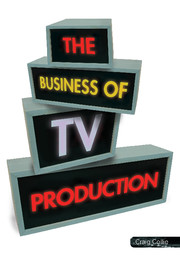Book contents
- Frontmatter
- Contents
- Preface
- Diagrams and tables
- Abbreviations
- Part A Opiate of the people: the television industry
- Part B Massage parlour: development and funding of a project
- Chapter 5 The concept
- Chapter 6 Development of the project
- Chapter 7 Approaches to genre development
- Chapter 8 The pursuit of funding
- Chapter 9 Management of a creative project
- Chapter 10 Multi-platform projects
- Chapter 11 Marketing and distribution
- Part C Riding the tiger: management of the production
- Part D A nod to the gatekeepers: the environment of television
- Index
- References
Chapter 6 - Development of the project
Published online by Cambridge University Press: 05 June 2012
- Frontmatter
- Contents
- Preface
- Diagrams and tables
- Abbreviations
- Part A Opiate of the people: the television industry
- Part B Massage parlour: development and funding of a project
- Chapter 5 The concept
- Chapter 6 Development of the project
- Chapter 7 Approaches to genre development
- Chapter 8 The pursuit of funding
- Chapter 9 Management of a creative project
- Chapter 10 Multi-platform projects
- Chapter 11 Marketing and distribution
- Part C Riding the tiger: management of the production
- Part D A nod to the gatekeepers: the environment of television
- Index
- References
Summary
Development is the most intensively creative stage of the production cycle. It is creative in the sense that it starts with very little, just a germ of a program – the concept – and builds from that, giving it definition, fleshing it out so that it is a realisable entity, which is capable, with the necessary resources, of being fashioned into a television program. Other stages have their creative aspects, both in production and post-production, but these are creative enhancements, finetuning of the program, rather than the creation of a program blueprint in the form of a script or shooting script, or detailed treatment from the trickle of an idea.
This aspect of the creative realisation of a program is often overlooked because of the more obvious creative input of directing and editing, but it is a mistake to think that development is just the accessing of resources and people to commence the creative production of a program. The development process is the interchange of ideas and testing of alternative treatments to determine how best to make the program so that it will successfully engage and entertain or inform its audience.
The output of the development stage will be, at minimum, a proposal document designed to sell the envisaged program to investors and/or broadcasters. The proposal's purpose will be to take the enterprise to the point of ‘greenlighting’, industry jargon for when funding is sufficient for the project to proceed into production.
- Type
- Chapter
- Information
- The Business of TV Production , pp. 93 - 115Publisher: Cambridge University PressPrint publication year: 2007



